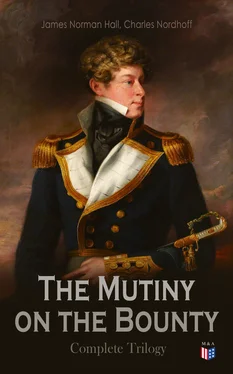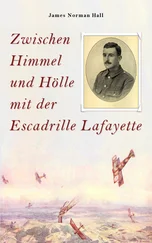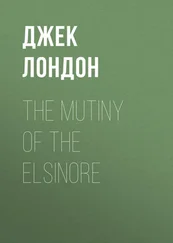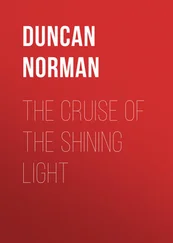From One Tree Hill to Point Venus a curving beach of black volcanic sand stretches for about a mile and a half. We were heading for a spot about midway between these two boundaries of Matavai Bay, and I saw that a considerable surf was pounding on the steep beach. As we drew near the breakers the man in the stern of the other canoe snatched up a heavy steering paddle and shouted an order which caused the men to cease paddling while four or five waves passed under us. A dense throng of Indians stood on the beach, awaiting our arrival with eagerness. Suddenly the man beside me began to shout, gripping the haft of his steering paddle strongly.
“A hoe!” he shouted. “Teie te are rahi!” (Paddle! Here is the great wave!) I recollect the words, for I was destined to hear them many times.
The men bent to their work, all shouting together; the canoe shot forward as a wave larger than the others lifted us high in the air and sent us racing for the sands. While the steersman held us stern-on, with efforts that made the muscles of his arms bulge mightily, we sped far up the beach, where a score of willing hands seized our little vessel to hold her against the backwash of the sea. I sprang out as the wave receded and made my way to high-water mark, while rollers were fetched and the double canoe hauled ashore with much shouting and laughter, to be housed under a long thatched shed.
Next moment I was surrounded by a throng so dense that I could scarcely breathe. But the crowd was good-natured and civil as no crowd in England could be; all seemed desirous to welcome me with every sign of pleasure. The clamour was deafening, for all talked and shouted at once. Small children with bright dark eyes clung to their mothers’ skirts and stared at me apprehensively, while their mothers and fathers pushed forward to shake my hand, a form of greeting, as I was to learn with some surprise, immemorially old among the Tahitians.
Then, suddenly as the clamour of voices had begun, it ceased. The people fell back deferentially to make way for a tall man of middle age, who was approaching me with an air of easy authority and good-natured assurance. A murmur ran through the crowd: “O Hitihiti!”
The newcomer was smooth-shaven, unlike most of the Indian men, who wore short beards. His hair, thick and sprinkled with grey, was close-cropped, and his kilt and short fringed cloak were of the finest workmanship and spotlessly clean. He was well over six feet in height, lighter-skinned than the run of his countrymen, and magnificently proportioned; his face, frank, firm, and humorous, attracted me instantly.
This gentleman—for I recognized at a glance that he was of a class different from any of the Indians I had seen hitherto—approached me with dignity, shook my hand warmly, and then, seizing me by the shoulders, applied his nose to my cheek, giving several loud sniffs as he did so. I was startled by the suddenness and novelty of the greeting, but I realized that this must be what Captain Cook and other navigators had termed “nose-rubbing,” though in reality it is a smelling of cheeks, and corresponds to our kiss. On releasing me, my new friend stepped back a pace while a loud murmur of approval went through the crowd. He then pointed to his broad chest and said: “Me Hitihiti! You midshipman! What name?”
I was so taken aback at these words of English that I stared at him for a moment before I replied. The people had evidently been waiting to see what effect the marvelous accomplishment of their compatriot would produce, and my display of astonishment turned out to be precisely what they were hoping for. There were nods and exclamations of satisfaction on all sides, and Hitihiti, now thoroughly pleased with himself and with me, repeated his question, “What name?”
“Byam,” I replied; and he said, “Byam! Byam!” nodding violently, while “Byam, Byam, Byam,” echoed throughout the crowd.
Hitihiti again pointed to his chest. “Fourteen year now,” he said with an air of pride, “me sail Captain Cook!” “Tuté! Tuté!” exclaimed a little old man close by, as if afraid that I might not understand.
“Could I have a drink of water?” I asked, for it was long since I had tasted any but the foul water aboard ship. Hitihiti started, and seized my hand.
He shouted an order to the people about us, which sent some of the boys and young men scampering off inland. He then led me up the steep rise behind the beach to a rustic shed where several young women made haste to spread a mat. We sat down side by side, and the crowd, increasing rapidly as parties of Indians arrived from up and down the coast, seated themselves on the grass outside. A dripping gourd, filled to the brim with clear sparkling water from the brook near by, was handed me, and I drank deep, setting it down half empty with a sigh of satisfaction.
I was then given a young coconut to drink—my first taste of this cool, sweet wine of the South Sea—and a broad leaf was spread beside me, on which the young women laid ripe bananas and one or two kinds of fruit I had not seen before. While I set to greedily on these delicacies, I heard a shout go up from the crowd, and saw that the Bounty’s launch was coming in through the surf, with Bligh in the stern sheets. My host sprang to his feet. “O Parai!” he exclaimed, and, as we waited for the boat to land, “You, me, taio, eh?”
Hitihiti was the first of the Indians to greet Bligh, whom he seemed to know well. And the captain recognized my friend at once.
“Hitihiti,” he said as he shook the Indian’s hand, “you’ve grown little older, my friend, though you’ve some grey hairs now.”
Hitihiti laughed. “Ten year, eh? Plenty long time! By God! Parai, you get fat!”
It was now the captain’s turn to laugh, as he touched his waist, by no means small in girth.
“Come ashore,” the Indian went on emphatically. “Eat plenty pig! Where Captain Cook? He come Tahiti soon?”
“My father?”
Hitihiti looked at Bligh in astonishment. “Captain Cook your father?” he asked.
“Certainly—didn’t you know that?”
For a moment the Indian chief stood in silent amazement; then, with extraordinary animation, he raised a hand for silence and addressed the crowd. The words were unintelligible to me, but I perceived at once that Hitihiti was a trained orator, and I knew that he was telling them that Bligh was the son of Captain Cook. Mr. Bligh stood close beside me as the chief went on with his harangue.
“I have instructed all of the people not to let the Indians know that Captain Cook is dead,” he said in a low voice. “And I believe that we shall accomplish our mission the quicker for their belief that I am his son.”
While I was somewhat taken aback by this piece of deception, I knew the reverence in which the people of Tahiti held the name of Cook, and perceived that, according to the Jesuitical idea that the end justifies the means, Mr. Bligh was right.
As Hitihiti ceased to speak there was a buzz of excited talk among the Indians, who looked at Bligh with fresh interest, not unmixed with awe. In their eyes, Captain Cook’s son was little less than a god. I took the opportunity to inform Mr. Bligh that Hitihiti had offered to become my taio, and that with his approval I thought well of the idea, since I should be able to communicate to some extent with my Indian friend.
“Excellent,” said the captain with a nod. “He is a chief of consequence on this part of the island, and nearly related to all of the principal families. And, as you say, the English he picked up on board the Resolution should be of great assistance to you in your work.” He turned to the Indian. “Hitihiti!”
“Yes, Parai.”
“Mr. Byam informs me that you and he are to be friends.”
Hitihiti nodded. “Me, Byam, taio!”
Читать дальше











